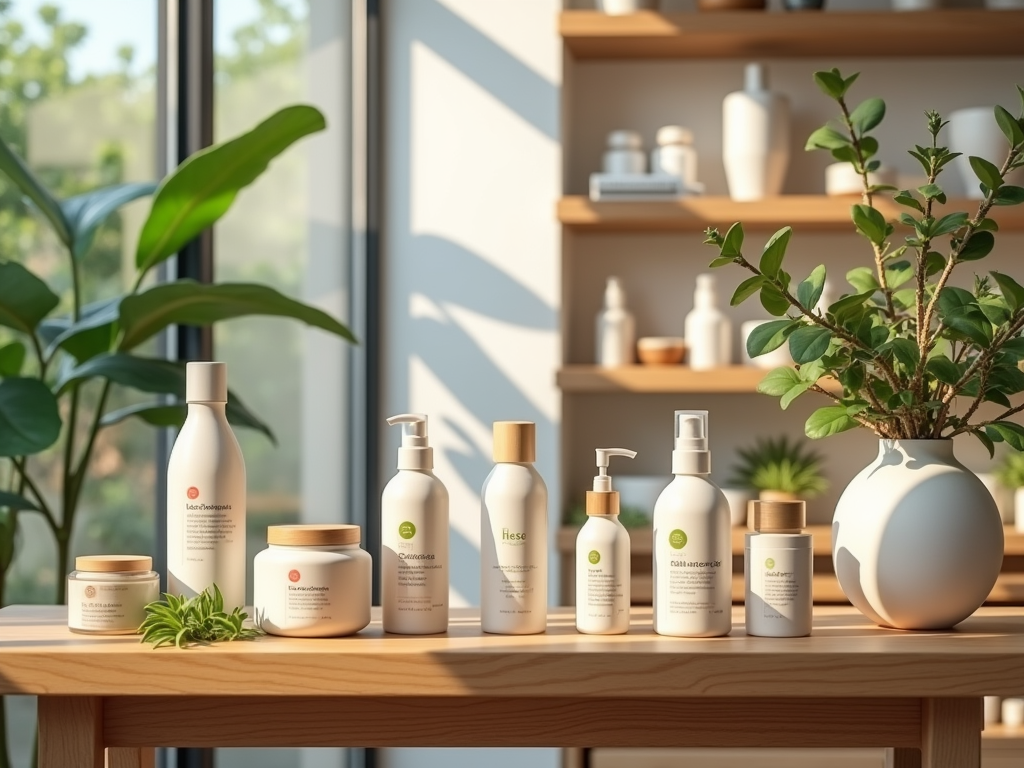Opening a specialty organic cosmetics store in Dubai can be a lucrative and rewarding venture, given the growing demand for natural beauty products. To successfully establish your store, you must carefully consider various factors, including market research, legal requirements, sourcing products, and creating a strong brand identity. This article outlines the essential steps to take, ensuring you are well-prepared to embark on your journey into the organic cosmetics industry in one of the most vibrant markets in the world.
Market Research: Understanding Your Customers

Before diving into the logistics of opening your store, thorough market research is crucial. Understanding your target audience helps you tailor your products and marketing strategies effectively. Here are some key steps to conduct comprehensive market research:
- Identify Your Target Market: Determine the demographics of customers interested in organic cosmetics, including age, gender, income level, and lifestyle.
- Analyze Competitors: Research existing organic cosmetics stores in Dubai. Note their product offerings, pricing strategies, and marketing techniques.
- Survey Potential Customers: Conduct surveys or engage in social media polls to gauge interests and preferences regarding organic beauty products.
- Trends Analysis: Stay updated on the latest trends in the organic cosmetics industry, both globally and within the UAE.
- Differentiation Strategies: Identify what sets your store apart from competitors, whether it’s product range, pricing, or superior customer service.
Legal Requirements: Navigating Regulations

Once you have a solid understanding of your market, the next step is to navigate the legal requirements involved in opening a business in Dubai. The process can seem daunting, but understanding the necessary regulations will ensure you operate within the law and avoid potential fines. Here’s what you need to consider:
- Business License: Apply for a business license through the Department of Economic Development (DED) in Dubai. Ensure your business activity is listed as selling organic cosmetics.
- Choosing a Business Structure: Decide on a legal structure, such as a sole proprietorship, LLC, or partnership, based on your business goals and investment plans.
- Trade Name Registration: Select a unique trade name and register it, ensuring it aligns with the nature of your business.
- Commercial Lease: Secure a commercial lease for your store location, complying with zoning laws and retail regulations.
- Health and Safety Regulations: Understand and comply with health and safety regulations related to cosmetics, including product testing and labeling requirements.
Sourcing Products: Building Your Inventory
With a solid legal foundation in place, the next step is sourcing high-quality organic cosmetics for your store. Your product selection plays a critical role in the store’s success, and thus you should focus on the following:
- Finding Reputable Suppliers: Identify and collaborate with trusted suppliers who specialize in organic cosmetics. Attend trade shows or industry expos to discover potential partners.
- Diverse Product Range: Offer a variety of products, including skincare, haircare, and makeup, catering to different customer preferences.
- Quality Assurance: Ensure that all products adhere to organic certifications and meet quality standards to build consumer trust.
- Negotiating Terms: Build solid relationships with suppliers and negotiate terms that work for both parties, focusing on pricing and delivery timelines.
- Testing Products: Consider testing products before adding them to your inventory to ensure they align with your brand values and customer expectations.
Brand Identity: Creating Your Unique Store
Establishing a strong brand identity is vital for differentiating your store from competitors and attracting customers. Consider the following aspects when developing your brand:
- Brand Name: Choose a memorable and reflective name that highlights your commitment to organic products.
- Visual Identity: Develop a cohesive visual identity, including logos, color palettes, and packaging that resonate with your target audience.
- Online Presence: Build a robust online presence through a user-friendly website and active social media profiles, allowing customers to engage with your brand.
- Marketing Strategy: Formulate a marketing strategy that utilizes both digital and brick-and-mortar promotional tactics to reach your audience effectively.
- Community Engagement: Host workshops or events to promote organic beauty education and build a community around your brand.
Conclusion
Opening a specialty organic cosmetics store in Dubai involves careful planning and execution of crucial steps, from understanding the market to establishing a strong brand identity. By conducting thorough market research, navigating legal requirements, sourcing quality products, and focusing on branding, you can position your store for success in a competitive landscape. The demand for organic and natural beauty products is on the rise, making now an opportune time to enter this thriving sector.
Frequently Asked Questions
1. What are the initial costs involved in opening an organic cosmetics store in Dubai?
The initial costs can vary greatly, but you should consider expenses such as business registration, rent, initial inventory, marketing, and utilities. On average, you might need a budget ranging from AED 50,000 to AED 200,000 or more.
2. Do I need a specific certification to sell organic cosmetics in Dubai?
While specific certification may not be mandatory for retailing organic products, ensuring that your suppliers provide certified organic products will help you build trust with your customers.
3. Is it necessary to have an online store alongside a physical location?
While not necessary, having an online store can significantly boost your reach and sales, especially in a market that increasingly values the convenience of online shopping.
4. What marketing strategies are effective for promoting an organic cosmetics store?
Effective marketing strategies include social media marketing, influencer collaborations, content marketing through blogs or videos, in-store events, and email newsletters targeting interested customers.
5. How important is customer feedback in this industry?
Customer feedback is essential. It helps in understanding consumer preferences, improving product offerings, and fostering a loyal customer base by demonstrating that you value their opinions.
